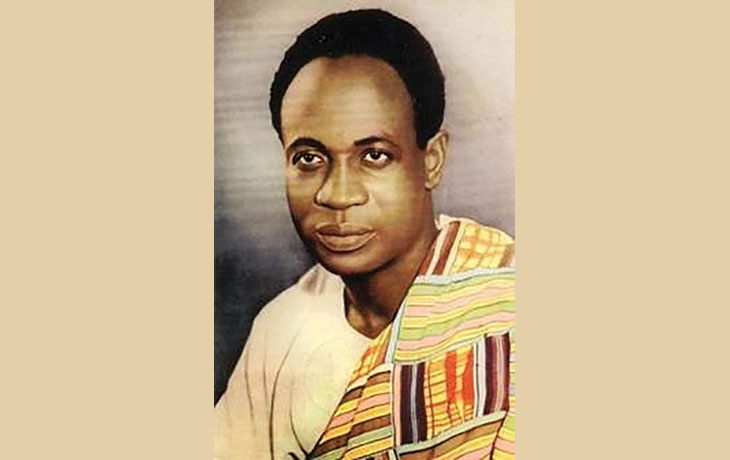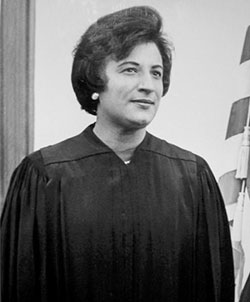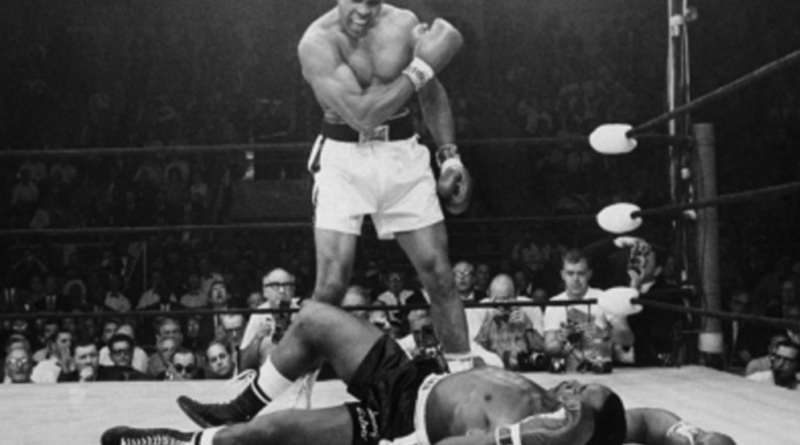This Week In Black History February 22 to February 28, 2023
1950—Basketball legend Julius “Dr. J” Erving is born in Roosevelt, N.Y. He was the most dominant NBA player of his era. The former Philadelphia 76’er was 6’7”, 210 pounds.
1868—Dr. W.E.B. DuBois is born William Edward Burghardt DuBois in Great Barrington, Mass. DuBois can easily qualify as Black America’s leading scholar and intellectual of the late 1800s and early 1900s. He was also an educator and social activist fighting tirelessly against racial injustice and U.S. imperialism. He started the NAACP’s influential “Crisis” magazine. He organized what many consider the First Pan African Congress. (Actually, it was the second. The first took place in 1900.) However, in his later years DuBois became increasingly frustrated with American racism, injustice and hypocritical brand of democracy. He turned to socialism around 1927 and despaired of the NAACP’s legalistic approach to obtaining rights for Blacks. He nevertheless authored several influential books including “The Souls of Black Folks.” He coined the phrase ‘talented tenth” to describe what he believed would have to be a class of educated and skilled Blacks who would have to lead the race out of its oppression. DuBois finally went into self-imposed exile in the West African nation of Ghana saying, “In my own country for nearly a century I have been nothing but a Nigger.” He died in Ghana’s capital, Accra, on Aug. 27, 1963. He was 95.
1864—Rebecca Lee Crumbler becomes the first African American woman to receive a medical degree. Born in 1833, she graduated from the New England Female Medical College. Prior to becoming a doctor, she had worked as a nurse in Massachusetts for more than six years.
1868—The U.S. House of Representatives voted 126 to 47 to impeach President Andrew Johnson. Johnson had run afoul of a group of pro-Black legislators known as the Radical Republicans because of his opposition to full citizenship rights for former slaves. He survived being ousted as president by one vote in the U.S. Senate. As far as historical speculation goes, it would have been much better for Black rights and the course of Black history if Johnson had been ousted. His opposition to full rights, including voting rights, for Blacks helped lay the foundation for the un-doing of Reconstruction and the many gains Blacks had made during that period.

1966—Kwame Nkrumah is ousted in a military coup as president of the West African nation of Ghana. This was another event which changed the course of Black history for the worse. Nkrumah, educated at the predominantly Black Lincoln University in Pennsylvania, had been a major intellectual and pragmatic force for Pan-Africanism and worldwide Black unity. From the time he became the first president of Ghana in March 1957, he had worked tirelessly for international Black advance and world peace. His ouster left a void which after 40 years has not been filled by any other African leader. Nkrumah died in 1972.
1851—The first Black Women’s Rights Convention is held in Akron, Ohio. The keynote speaker was anti-slavery activist Sojourner Truth.

1966—Constance Baker Motley becomes the first African American woman appointed to a federal judgeship. She takes the bench in the Southern District of New York. Motley was a major civil rights hero helping win several important cases during the 1950s and ‘60s. Among the cases was the landmark Brown v. Board of Education case, which desegregated the nation’s schools. She worked for the NAACP Legal Defense and Education Fund and helped Dr. Martin Luther King Jr. in several of his legal battles. Born in 1921 in New Haven, Conn., Motley died in 2006.
1980—Black Entertainment Television, the first Black owned company listed on the New York Stock Exchange, begins broadcasting from its headquarters in Washington, D.C. While still Black programmed, BET is now owned by media conglomerate Viacom.

1920—Dr. (1875-1950) founds the first nationally organized celebration of Black American history (then called Negro History Week), which was first celebrated on this day in 1926. Woodson scheduled the week to coincide with the birthdays of Civil War President Abraham Lincoln and Black abolitionist Frederick Douglass. However, in 1976, Negro History Week was expanded into the current day Black History Month. For his efforts in promoting knowledge of Black historical achievements Woodson became known as the “Father of Black History.” In explaining the need for the celebration, Woodson once said, “Those who have no record of what their forebears have accomplished lose the inspiration which comes from the teaching of biography and history.”

1964—Heavyweight boxing champion Cassius Clay changes his name to Muhammad Ali after rejecting Christianity and joining the Elijah Muhammad-led Nation of Islam.
1748—This is the probable birth date of Prince Hall—the “Father of Black Masons.” Hall was a veteran of America’s war of independence from England, founder of the first African-American Masonic lodges and one of the most prominent Black leaders of his era. The charter for the first Black Masonic lodge was granted on Sept. 29, 1784. It was known as African Lodge #459 of Boston.
1869—Congress adopts the 15th Amendment to the United States Constitution making it illegal for the U.S. government or any state to “deny or abridge” the right to vote “on account of race, color or previous condition of servitude.” This was one of the so-called “Reconstruction Amendments (13th, 14th & 15th)” which essentially ended slavery, made Blacks full U.S. citizens and guaranteed the right to vote.
1872—Charlotte E. Ray graduates from the Howard University Law School becoming the first Black female lawyer in the United States. It also appears that she was the third female lawyer of any race. She was admitted to the Washington, D.C., bar the same year she graduated. But racism and sexism prevented her from making a living as a lawyer in the nation’s capital, so she moved to New York and got a job with the Brooklyn school system.
1708—One of the first recorded slave revolts in American history takes place on Newton, Long Island (New York). Seven Whites are killed. In retaliation, two Black male slaves and one Indian male slave were hung, while one Black female slave was burned alive.
1879—A date considered by many to mark the beginning of the great “Exodus of 1879,” when thousands of Blacks begin fleeing racism, violence and economic exploitation in the South for new lives in the Midwest, especially Kansas. One of the most prominent organizers of the exodus was former Tennessee slave Benjamin “Pap” Singleton. An estimated 20,000 Blacks took part in the exodus. They were driven in part by the Homestead Act which promised free land. But by 1880, efforts had already begun to curtail the movement of Blacks to the Midwest. In 1881, Pap Singleton was hauled before a Senate investigative committee looking into his role in the exodus.

1989—Philip Emeagwali is awarded the Golden Bell Prize for solving one of the 20 most difficult problems in computer science. The prize is widely considered the “Nobel Prize of Computing.” The feat of the Nigerian-born computer scientist involved, at the time, the world’s fastest computer computation—a staggering 3.1 billion calculations per second. He figured out how oil flows underground and thus better enabled companies to extract it.

